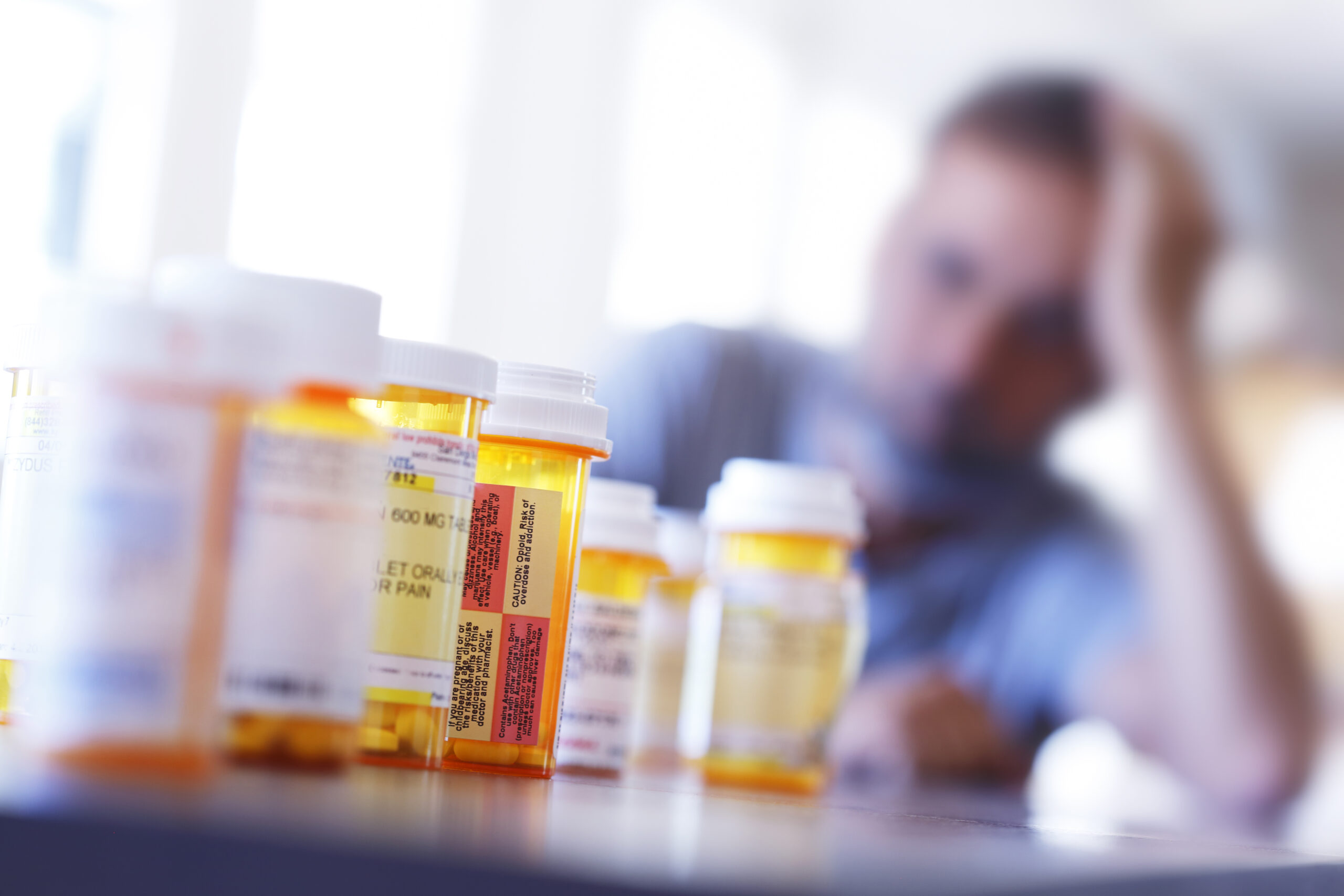CBD versus Addictive Medications

A Deeper Dive into the Benefits and Risks
Cannabidiol (CBD) has emerged as a potential alternative treatment for various medical conditions, often providing a safer, non-addictive option compared to traditional medications. This article takes a deeper look at the benefits and risks of using CBD as an alternative to addictive medications, focusing on pain management, anxiety treatment, and sleep disorders.
Pain Management:
Opioids are commonly prescribed for pain management but carry significant risks, including addiction, overdose, and various side effects. CBD has shown potential as a non-addictive alternative for pain relief. A study in the Journal of Experimental Medicine found that CBD effectively reduced pain in animal models, suggesting its potential for managing human pain conditions[1]. By interacting with the endocannabinoid system and targeting α3 glycine receptors, CBD modulates pain signaling and inflammation, offering a safer option for patients seeking pain relief without the risk of addiction[1]. Additionally, CBD has been found to enhance the pain-relieving effects of opioids, potentially allowing for lower doses and reduced side effects in combination therapy[4].
Anxiety Treatment:
Benzodiazepines are a class of medications often prescribed for anxiety disorders. While effective, they Neurotherapeutics found that CBD has anxiolytic effects, potentially reducing anxiety[2]. CBD’s interaction with serotonin receptors in the brain, particularly the 5-HT1A receptor, may help alleviate anxiety without the risks associated with benzodiazepines, making it a promising alternative for anxiety treatment[5]. Furthermore, CBD has demonstrated efficacy in treating a variety of anxiety-related disorders, including generalized anxiety disorder, panic disorder, and social anxiety disorder[2].
Sleep Disorders:
Many sleep aids, such as benzodiazepines and Z-drugs, can lead to dependence and side effects. CBD has shown potential as a natural, non-addictive sleep aid. A study in the Journal of Clinical Pharmacology reported that CBD improved sleep quality in patients with insomnia[3]. CBD may regulate sleep by interacting with the endocannabinoid system, modulating the sleep-wake cycle, and reducing anxiety, which can contribute to sleep disturbances[6]. In addition, CBD’s anti-inflammatory properties may help alleviate symptoms of sleep apnea, a common sleep disorder characterized by disrupted breathing during sleep[7].
Conclusion:
CBD offers a potential alternative to addictive medications for pain management, anxiety treatment, and sleep disorders. By providing non-addictive, safer options for treatment, CBD may help patients avoid the risks associated with traditional medications. As research continues, healthcare professionals and patients should discuss CBD usage and potential medication interactions before incorporating it into their treatment plans.
Sources:
[1] Xiong, W., Cui, T., Cheng, K., Yang, F., Chen, S. R., Willenbring, D., Guan, Y., Pan, H. L., Ren, K., Xu, Y., & Zhang, L. (2012). Cannabinoids suppress inflammatory and neuropathic pain by targeting α3 glycine receptors. Journal of Experimental Medicine, 209(6), 1121-1134.
[2] Blessing, E. M., Steenkamp, M. M., Manzanares, J., & Marmar, C. R. (2015). Cannabidiol as a Potential Treatment for Anxiety Disorders. Neurotherapeutics, 12(4), 825-836.
[3] Carlini, E. A., & Cunha, J. M. (1981). Hypnotic and antiepileptic effects of cannabidiol. Journal of Clinical Pharmacology, 21(S1), 417S-427S.
[4] Russo, E. B., Guy, G. W., & Robson, P. J. (2007). Cannabis, pain, and sleep: Lessons from therapeutic clinical trials of Sativex, a cannabis-based medicine. Chemistry & Biodiversity, 4(8), 1729-1743.
[5] Sales, A. J., Fogaça, M. V., Sartim, A. G., Pereira, V. S., Wegener, G., Guimarães, F. S., & Joca, S. R. L. (2019). Cannabidiol Induces Rapid and Sustained Antidepressant-Like Effects Through Increased BDNF Signaling and Synaptogenesis in the Prefrontal Cortex. Molecular Neurobiology, 56(2), 1070-1081.
[6] Babson, K. A., Sottile, J., & Morabito, D. (2017). Cannabis, Cannabinoids, and Sleep: a Review of the Literature. Current Psychiatry Reports, 19(4), 23.
[7] Varga, Z. K., Matyas, C., Erdelyi, K., Cinar, R., Nieri, D., Chicca, A., Nemeth, B. T., Paloczi, J., Lutz, B., Gertsch, J., Pacher, P., & Foldvari, Z. (2021). Beta-caryophyllene protects against alcoholic steatohepatitis by attenuating inflammation and metabolic dysregulation in mice. British Journal of Pharmacology, 178(4), 926-940.


